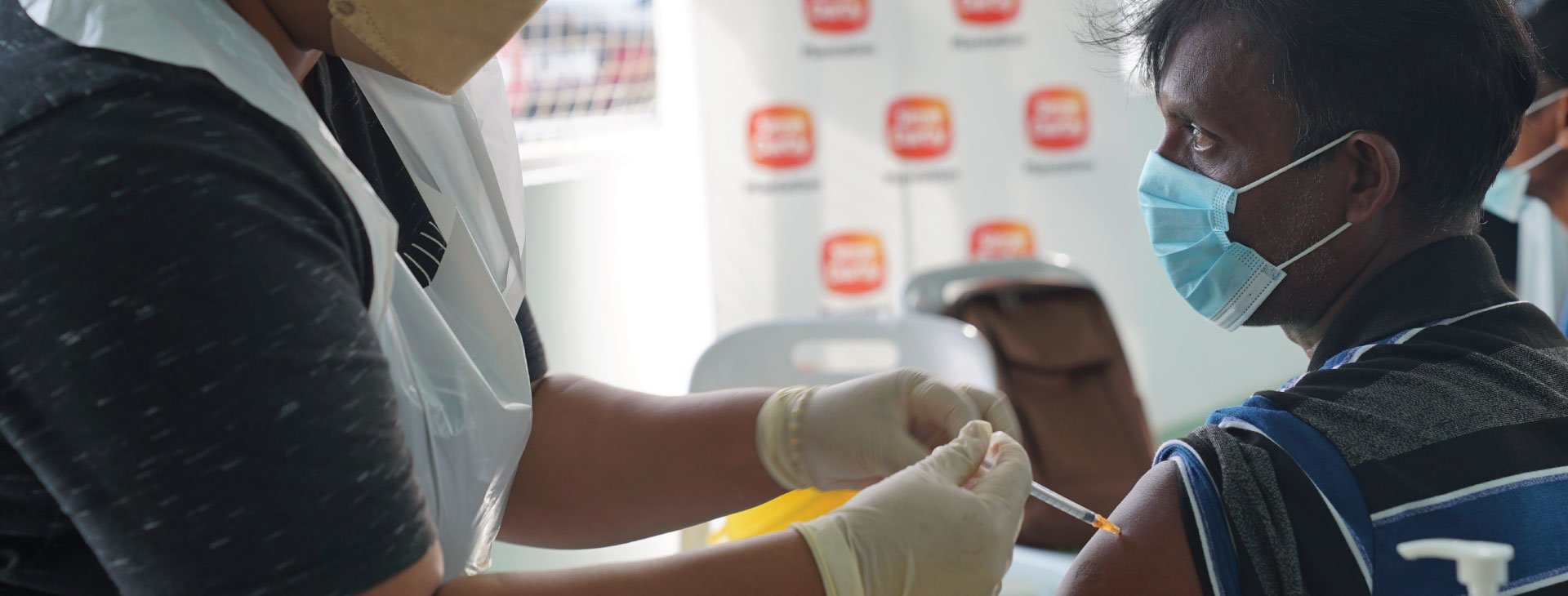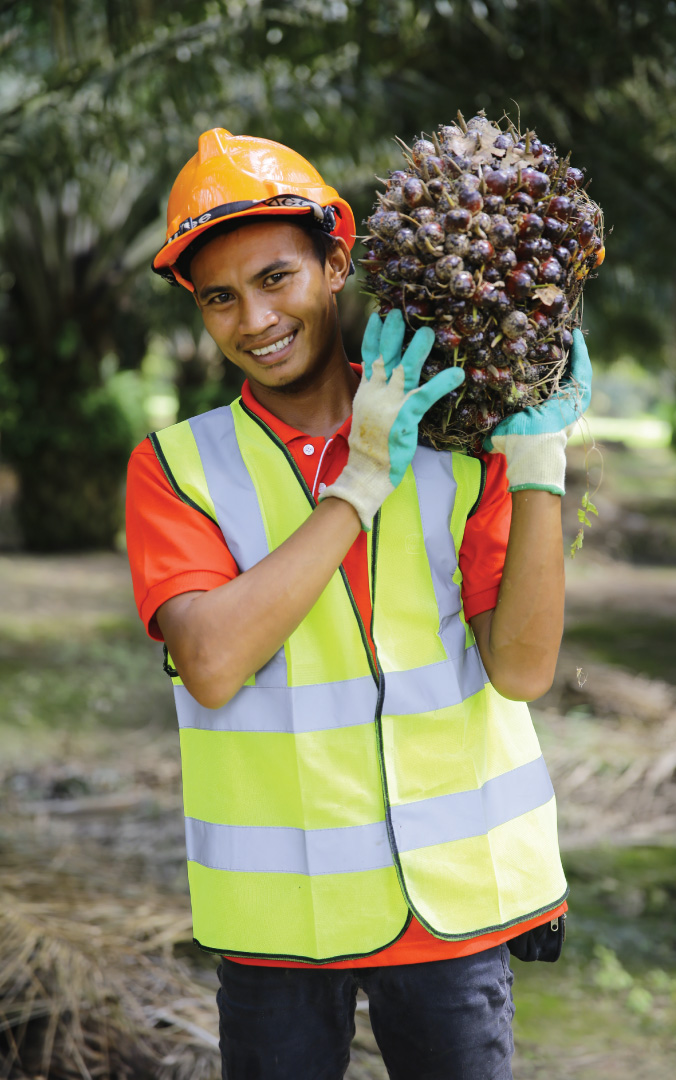Helping People Thrive
Our Commitments
We are committed to helping people thrive and ensuring their well-being.
One of our central commitments is to respect, support and uphold the fundamental human rights of those in and around our operations. These commitments have been inked in our Human Rights Charter (HRC), the core values of our business, and is governed by our Code of Business Conduct and Group Policies and Authorities.
Our HRC also provides the scope of our commitments and clear guidelines on how to approach human rights issues within our operations. We review and update our HRC periodically to reflect our progress and welcome constructive feedback.
Sime Darby Plantation Berhad commits to all Fundamental and Core International Labour Organization (ILO) Conventions. We also adhere to the Universal Declaration of Human Rights and the United Nations Guiding Principles on Business and Human Rights. We proactively report our human rights progress through our UK Modern Slavery Act Statement.
Due to our complex supply chains, we are faced with human rights challenges. We see these as opportunities to continue identifying areas where we can create positive change. We do this in partnership with other like-minded organisations and experts who share our beliefs and have pledged to protect human rights. The outcomes from our due diligence programmes have allowed us to prioritise our efforts in areas where human rights risks exist and have the most severe impact on people and our business.
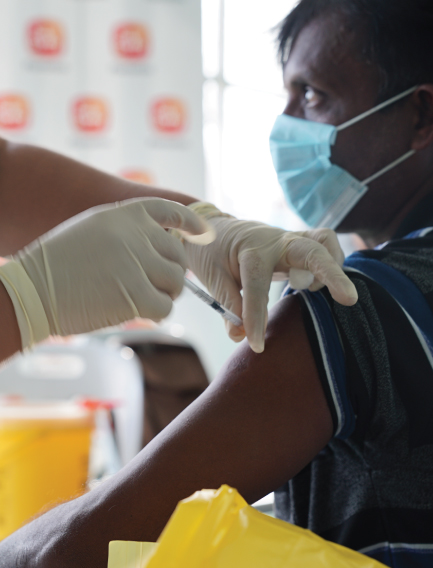
Our Approach To Due Diligence
Our Human Rights Due Diligence programme is guided by the United Nations Guiding Principles (UNGP) on Business and Human Rights. We endeavour to meet internationally recognised standards and practices, including the International Bill of Human Rights and the United Nations Declaration on the Rights of Indigenous Peoples, International Labour Organisation core labour standards and relevant industry standards and protocols. We adopted these principles and standards, as we believe it is the best way to run our business.
We began our programme in 2016 by partnering with SHIFT, a leading expert on the UNGP on Business and Human Rights. Together, we worked on a business learning programme that included an assessment of human rights impacts in our operations.
Through the partnership, we conducted structured assessments in almost 50% of our operations (specifically in Malaysia and Indonesia) and have identified pertinent issues through our Human Rights Heat Map. Given the breadth of our operations, we recognised the need to improve our approach to mitigate risks through a prioritised methodology that is unique to the people in locations we operate in. Our phased approach considers the likelihood of issues occurring, the severity of the impact on people, and our operations' landscapes.
We also monitor prevalent issues within the oil palm industry to understand areas where a more industry-wide approach to mitigation is required.
Our human rights heat map helps us prioritise risks based on their severity and likelihood. This assessment supports our dialogue with estate managers in prioritising and addressing issues in our plantations.
The Progress of Human Rights Due Diligence Work in Our Operations
In December 2020, the United States Customs and Border Protection (US CBP) imposed a Withhold Release Order (WRO) on palm oil produced in our Malaysian operations. As part of our effort to address the WRO, we are currently working with Impactt, an ethical trade consultancy organisation, to conduct an independent evaluation of labour practices in our Upstream Malaysia operations. We are also working with Andy Hall, a human rights activist, to review and improve our foreign worker recruitment processes.
Governance
In 2021, we implemented a more robust Human Rights governance structure. We monitor and verify the implementation of human rights policies, guidelines and initiatives within our operations through a working group that comprises representatives from various key functions – namely Finance, Sustainability, Human Resources, Upstream operations, Communications, Legal, Governance, Assurance & Compliance (GAC), and Risk Management, Corporate Services. This working group is also made up of operating functions responsible for implementing various improvements and initiatives.
The Chief Finance Officer chairs this Working Group and reports to the Steering Committee made up of the members of the Plantation Leadership Committee (Senior Management). The Steering Committee reports directly to the Board's Sustainability Committee.
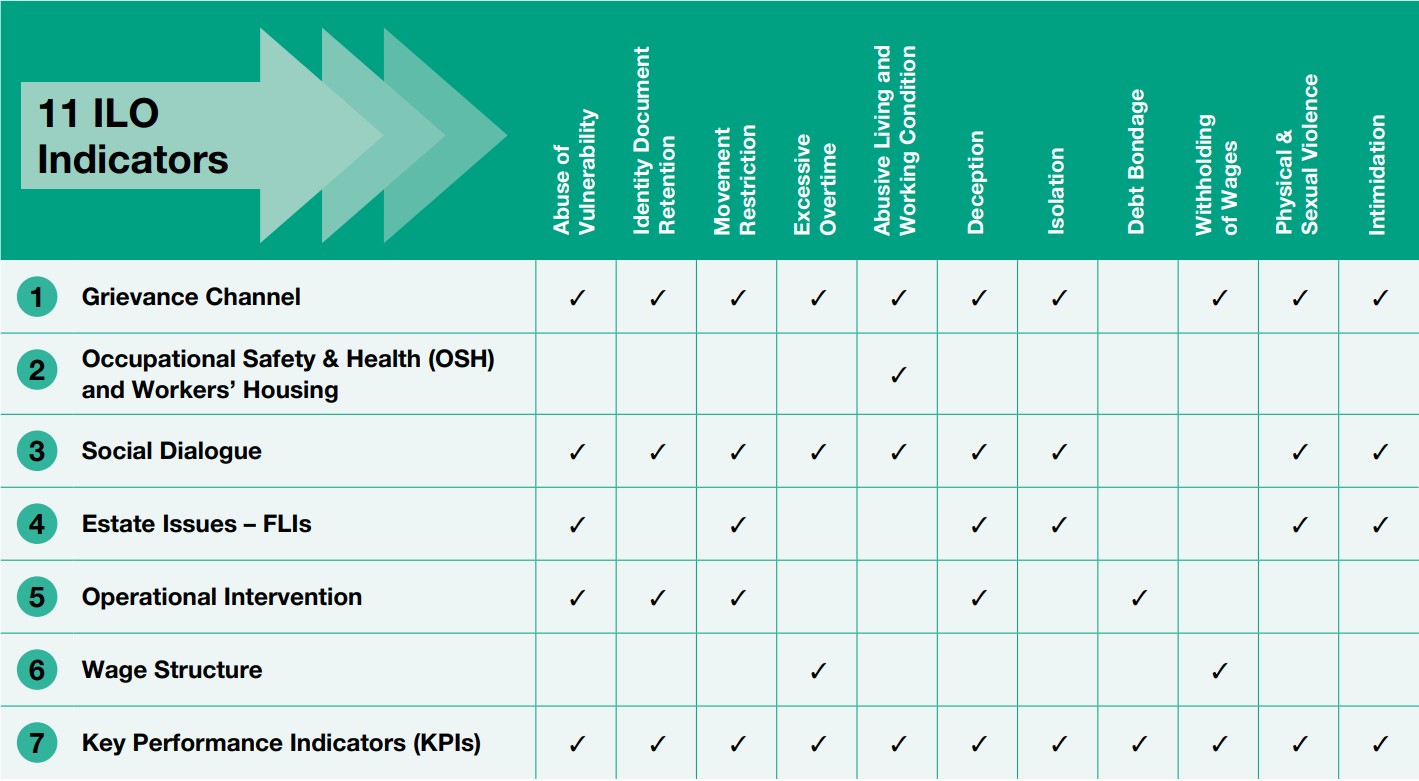
Our Initiatives
Ethical Recruitment
Safety And Health
Decent Working and Living Environment
Diversity And Inclusivity
Community Development
Children rights
Grievance Mechanism
Pandemic Assistance
Ethical Recruitment
Approximately 70% of our workforce in Malaysia are migrant workers from various countries. We recognise that the recruitment practices in place may be abused thus exposing our workers to risks such as modern-day slavery and exploitation. For this reason, we have been actively seeking solutions to enhance the migration experience for our workers through Responsible Recruitment practices, which include:
No Recruitment fees – Our core principle of zero-cost means no worker should pay for a job. Sime Darby Plantation shall bear all the costs of recruitment. The Group has reimbursed most of its foreign workers currently within its employ who may have paid recruitment fees to secure employment with the Group.
No retention of documents – We do not withhold or detain workers' passports or personal documents.
No contract substitution – Workers' agreements to the terms and conditions of recruitment and employment is voluntary and free from deception or coercion.
We appoint ethical recruitment agents and protect workers from any form of coercion, intimidation or deception in the process of seeking employment in SDP.
Historic recruitment fees (unreported payments charged by agents, sub-agents or other third parties to SDP’s foreign workers in countries of origin, in contravention of SDP’s zero recruitment fee policy) reimbursed to current and former workers.
Recruitment policies, processes and practices have effective due diligence systems in place to ensure ethical recruitment.
All workers are in possession of their own personal documents and have individual, secure lockers within their own accommodation to keep them.
In 2021, we reviewed our recruitment procedures to improve existing practices with the aim of developing an even more robust and transparent process. However, due to the closure of international borders to curb the COVID-19 virus, we have not been able to hire new migrant workers since March 2020.
As an existing practice, SDP is involved in the entire hiring process: from quota approvals, recruitment drives at the country of origin, immigration clearance, and self-pick-ups at the Malaysian airport.
Our dedicated Workforce Management Teams conduct recruitment drives in the villages and recruitment centres in origin countries to promote our job vacancies, conduct interviews, and select potential workers. Our presence at all key stages ensures workers are given clear explanations about the Company and the nature of work offered throughout the process.
Our recruitment materials are produced in-house, enriched with clear visuals on the actual work conditions in relevant native languages. Our contracts are also translated into native languages with terms aligned with national and local collective bargaining agreements. Each worker is provided with a copy of the contract, and any revisions are socialised with clear explanations provided.
Where it is necessary to engage the services of local recruitment agents in origin countries, a comprehensive due diligence process is undertaken to ensure recruitment agents we work with are ethical and transparent. The selection of recruitment agents is conducted via an open tender process which includes a comprehensive briefing on all SDP's requirement and labour standards and practices, that all agents are required to adhere to.
Recruitment Agents must undergo training and mentoring programmes to identify key management practices that promote ethical recruitment and practical solutions to encourage implementation.
Agents must understand SDP's requirements and can implement best practices and undertake remedial efforts
A review on the practical implementation of Zero-Cost or Employer Pays Principle was conducted to ensure SDP pays specific costs. We conducted a mapping of the migration route to understand what some of the costs workers incur are. Thus, SDP implements a No Recruitment Cost policy defined by the International Labour Organisation's General principles and operational guidelines for fair recruitment and definition of recruitment fees and related costs. Practical controls are in place to ensure that we do not inadvertently support any form of illegitimate, unreasonable and undisclosed costs within our supply chain. Our procedures are outlined in our Responsible Recruitment Policy.
In a larger context, we are aware that migrant workers continue to face challenges and vulnerabilities due to the global pandemic. For those who have expressed a desire to return to their home countries, we are working with relevant stakeholders to reduce these vulnerabilities and provide a safe migration passage for them.
All workers have the right to freedom of movement when living and working in our operations.
Sime Darby Plantation does not withhold or retain any of our workers' identification documents, including their passports.
All our foreign workers in our operations are provided with individual safe lockers in their living quarters to keep all their personal documents.
Should any passport be required to be submitted for document processing, such as processing of work permits, a letter of consent from workers is obtained after clearly explaining the reasons for submission, the duration of the process and the expected return date of their passport.
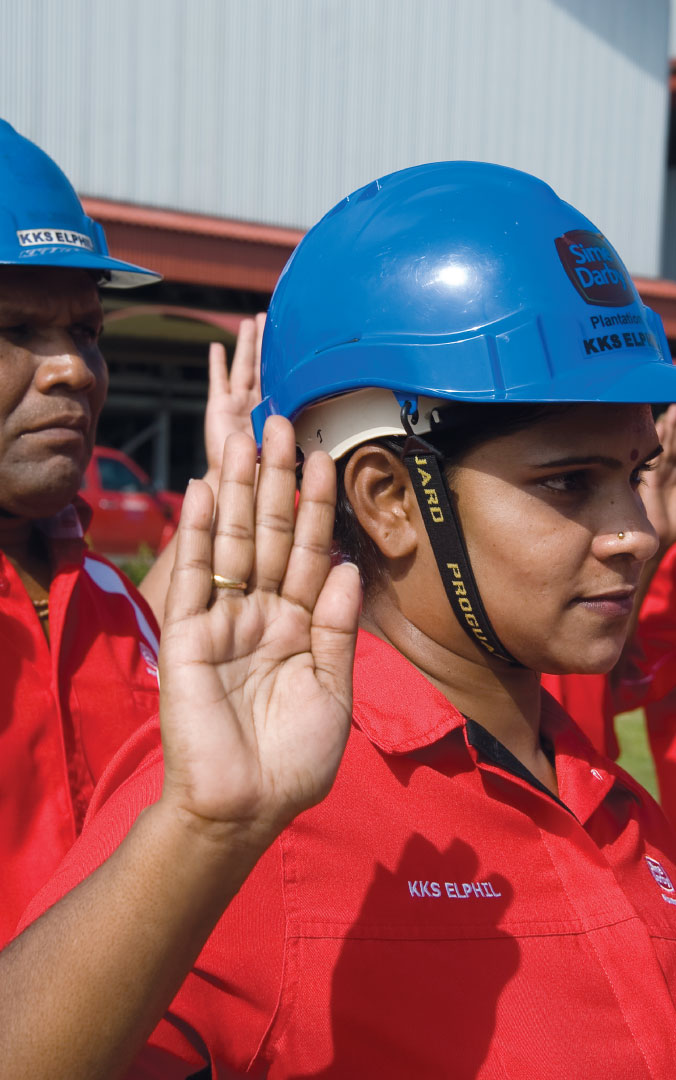
Diversity and Inclusivity
We have always viewed equality and diversity as a business imperative. We strive to foster an inclusive work environment that reflects the richly diverse cultural, racial and ethnic backgrounds of the communities wherein we operate. Efforts to promote mutual respect and to appreciate cultural diversity are carried out in all our operations.
Women workers at our operations traditionally face challenges balancing work and family responsibilities. SDP does not discriminate and offers equal work for equal pay regardless of gender. We respect maternal and paternal leave regulations according to national laws. Pregnant women and mothers with newborns are assigned jobs which do not expose them to any occupational hazards, at equal pay. They are also provided with dedicated spaces and breaks for breastfeeding and given access to childcare centres during work hours. We also collaborate with local health authorities to support mother and child health programmes such as immunisation, infant health, maternal check-ups, reproductive health awareness, and birth registration at our operations. Visiting medical officers also regularly make rounds at our plantations. Gender committees have been established at all estates and mills to advance workplace discussions affecting women on violence and sexual harassment, women’s health, and financial and retirement planning.
Female Management Development Programme
In 2018, we launched our Female Management Development Programme (FMDP) in SDP's upstream Malaysia operations to upskill and empower female employees to undertake management roles. These women undergo a series of technical and skills-based training. Periodic coaching is also conducted to ensure they have the support and knowledge needed.
As a result of the programme, our female employees have gained ground in a traditionally male-dominated industry. This includes, in recent years, the appointment of women to leadership positions in upstream operations. SDP has a woman estate manager, a mill manager and even a regional CEO. There are several others at the middle management level in upstream operations who are steadily climbing the ranks.
In addition, there are 140 scientists in SDP of which, 52 percent of those involved in the research and development (R&D) team are women. Read their profiles in
https://simedarbyplantation.com/perlu-kesabaran-tinggi/
https://simedarbyplantation.com/sime-darby-plantations-first-female-mill-manager/
As of Dec 2022
30%
of the Board of Directors are women
11,747
women employees
20%
of the Group’s total workforce
27%
of senior management posts
Sexual harassment and physical violence have no place in our operations.
In 2019, we published a revised sexual harassment policy that sets out robust reporting procedures and prescribed courses of action to remediate sexual and physical violence issues.
The following guiding principles steer the policy:
- Confidentiality
- Prompt inquiry and action
- Support and protection for complainants
- Accountability
- Education and awareness
Any employee who is aware of any sexual harassment allegation is required and encouraged to report it through all our available grievance channels immediately. We conduct various awareness training and campaigns for employees from all levels so they know their rights and the channels for grievance reports.
In our Upstream Malaysia operations, a series of training have been conducted with the Womens' Aid Association (WAO), a local civil society organisation, to develop an improved Women's Safety Framework. The programme contains key components targeted at inculcating a diverse and inclusive workplace culture through gender audits, gender sensitivity training for managers and training for Gender Representatives.
In New Britain Palm Oil, our subsidiary Guadalcanal Plains Palm Oil Limited, participates in campaigns and training against gender-based violence. The programme is organised by UN Women to advocate eradicating violence against women, girls and children in the community, under the theme 'Herem Vois Blo Mi (Orange the World: #HearMeToo)'. Participants are exposed to training on company policies related to domestic violence and sexual harassment, human rights, maternal and equal opportunities, and equal rights. The training also includes an overview of domestic violence and the various forms of abuse women, girls and children face. Site-based churches also participated and held dedicated church services to raise awareness among their respective congregations. Executive staff visited the Christian Care Centre (CCC) to understand better the extent and impact of violence against women, girls and children. They also donated food, clothing and other household items to support the CCC.
Gender equality is an imperative aspect for the development and sustainability of any community, including a global organisation such as ours.
This is why we have set up gender committees across all our mills and estates as a way for our female employees to reach out to us through their counterparts. It is essentially a platform for women by women.
Gender Committees are made up of female workers of both executive and non-executive levels with the following objectives:
- To raise awareness, identify and address issues of concerns as well as opportunities and areas for improvement for workers particularly women.
- To be empowered to escalate issues facing women in the operations through structured programmes and learnings.
- To teach a culture of engagement and active communication in the operating units with workers and their families.
- To rope in employees from all levels, including Managers and Supervisors, to create a gender-sensitive and safe community.
- To create a safe community within operations where women can raise issues and concerns at work and in their lives, focusing on zero tolerance to sexual harassment and gender-based violence.
Periodic training with the Gender Committee members is conducted to educate and build their capacity to uphold the rights of female workers in the operations.
Communication is the foundation of any organisation. Due to the diverse ethnic and cultural backgrounds of our people, it is particularly crucial for us at Sime Darby Plantation.
We promote open communication and have improved avenues for dialogue, especially between Workers and the Management in estates and mills.
Worker Representatives from all nationalities are elected through a democratic process and undergo training on managing and conducting social dialogues. The unique modules cover, amongst others, preparing for social dialogues, listening skills, talking skills, emotional control and non-verbal communication.
Since its inception, 1,500 Worker Representatives have been elected among themselves covering all nationalities and genders. >13,846 issues have been discussed with 96% of issues resolved.
The same training on social dialogues is also provided to Management Representatives. Roleplay sessions are incorporated to ensure that both Management and workers are comfortable participating in social dialogue sessions.
Upon completing the training, each operating unit must conduct periodic social dialogues that are tracked and monitored through a structured system. The Regional office monitors all social dialogues to ensure governance and oversight of issues.
Outcomes and recommendations made through social dialogues must be consensual and shared with all workers to ensure sessions are effective.
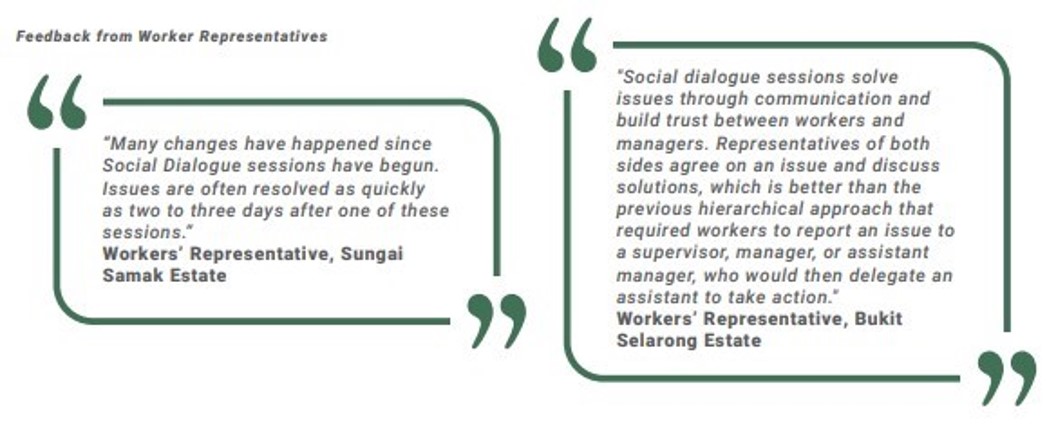
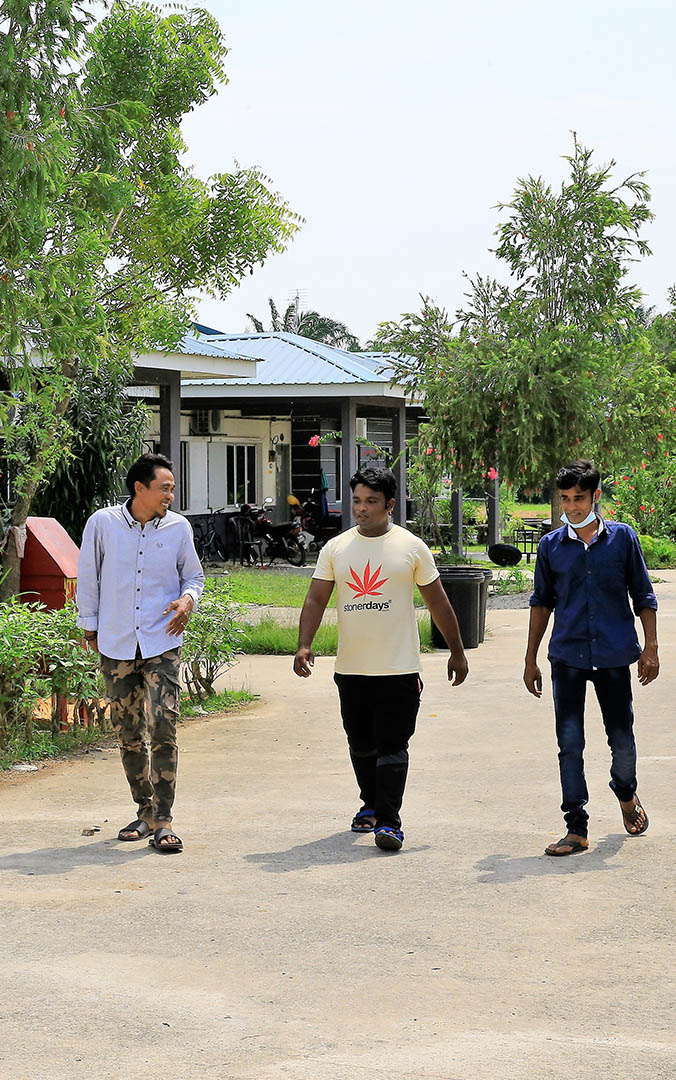
Community Development
Our operations have coexisted with communities for generations, and we have grown together over the years. Therefore, it is natural for us to be part of the community, a good corporate citizen creating positive impacts through proactive engagements and collaborations.
Sime Darby Plantation conducts Social & Environmental Impact Assessments (SEIA) as part of our standard operating procedures before any development begins. Such assessments aim to identify potential environmental or social issues and set out appropriate actions needed to address them.
Requirements for SEIA is extended to our suppliers to ensure our entire supply chain adheres to local SEIA regulations and those outlined in our Responsible Sourcing Guidelines.
We fully respect the customary rights of the communities in the areas that we operate. We also recognise the United Nations Declaration of Rights of Indigenous Peoples in our planting procedures.
Our teams engage with community leaders and the communities who could be impacted by projects before any development can commence. We share our plan of action for the specific area in a forum session, allowing the community to share its views. We will not proceed with any development in an area without the express approval from the community or its elected representatives.
Stakeholder engagement is integral to our business. Our key stakeholders include shareholders, customers, employees, non-governmental organisations, industry groups, and government agencies. Our engagements vary from formal to informal, and we evaluate all issues for their potential impacts on stakeholders and our business.
Throughout the year, our operations conduct periodic engagements with the local communities to discuss issues in order to resolve conflicts or potential conflicts. This is managed locally by the operating units. However, if an issue cannot be resolved, operating units will request for further support from the Regional Management or Head Office functions. In some cases, local civil society organisations are invited to assist in dialogues to reach an amicable agreement between parties. All dialogues are minuted and communicated to community members for their agreement.
The Group also initiates social development programmes that benefit the communities located near our operations, particularly upstream operations across Malaysia, Indonesia, Papua New Guinea and Solomon Islands. These are targeted to address the prevailing needs of the community while providing employees of SDP the opportunity to volunteer their time and effort towards community development.
Disaster relief: The Group provided aid for those impacted by the floods in Bentong, Malaysia as well as the earthquake in Cianjur, Indonesia. Aid was also extended to families impacted by a fire in Tawau, Malaysia.
Festive cheer: SDP and its volunteers brought festive cheer to the less privileged by donating food and other basic necessities to families in need. These initiatives were conducted in conjunction with major festivals in Malaysia.
Education: In addition to providing back-to-school aid for children from B40 families, the Group also funded fire prevention programmes for 5 schools in the Riau province of Indonesia and equipped libraries at Milne Bay and West New Britain estates in Papua New Guinea. https://www.nbpol.com/partnership-with-people.html
Environmental: SDP volunteers collected more than 2,000 kg of rubbish from beach and river clean ups in Selangor, Malaysia in a joint programme with YSD and Fuze Ecoteer. The Group also engaged the community on a project to restore the mangrove at West New Britain estate, Papua New Guinea.
Clean water: The Group initiated projects for clean water supply to villages near West New Britain estate and Higaturu estate, both in Papua New Guinea.
Empowerment of women: SDP funded women’s support groups in promoting the empowerment of women to curb gender-based violence and improve gender equality in Papua New Guinea, which has a poor track record in these matters.
COVID-19: Provided COVID-19 booster vaccinations to 4,489 workers in upstream Malaysia Operations.
We want to make a difference and enrich the lives of all people within and surrounding our operations. We often do this by supporting local communities, by building infrastructure to improve access, providing aid in times of need and creating opportunities for economic development.
For most of our operations that are located in remote and rural areas, we support and sometimes take on the role of building or rebuilding infrastructure and facilities such as roads, community halls and health centres. We also set up facilities that help improve or provide access to basic needs such as clean water, sanitation, and education. Through our operations, we also aim to support the livelihoods of local communities through job opportunities, economic growth and alternative and sustainable livelihood training.
Together with the Sime Darby Foundation, we have supported Corporate Social Responsibility programmes amounting to more than RM127 Million to date. These programmes include initiatives that promote environmental stewardship, community health and well-being, access to universal education, and employee volunteering programmes.
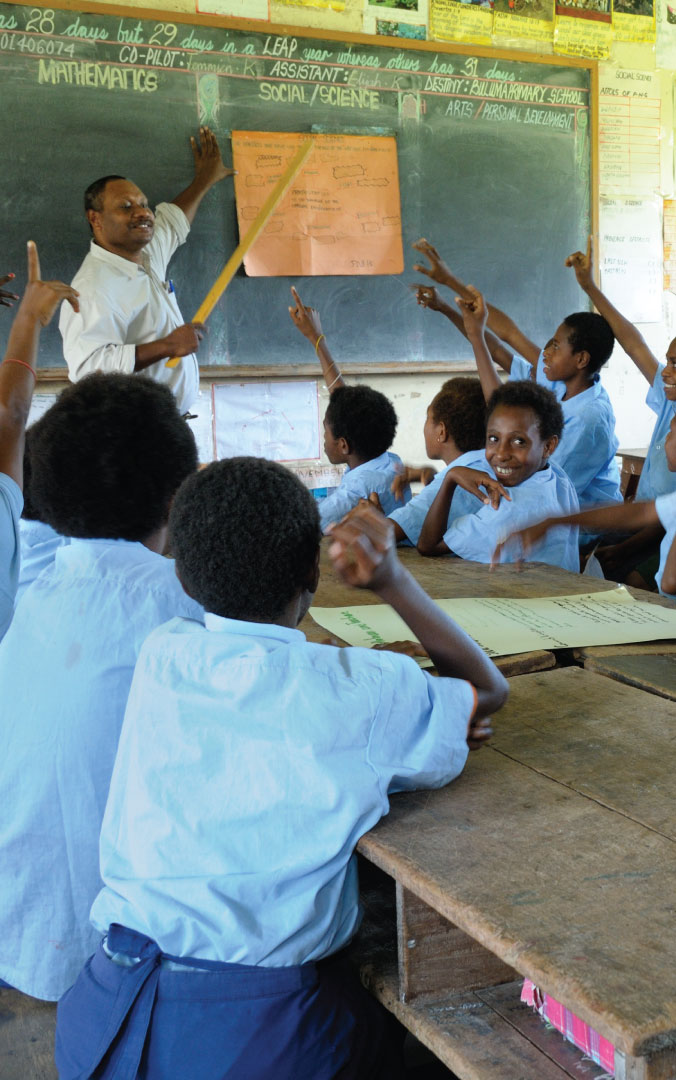
Children Rights
Because we provide our workers with excellent facilities and living arrangements, many bring their families along to live on our estates. We have young families, including children, building their homes and futures in most of our operations.
Interacting with these families and watching their children mature positively has anchored our commitment to protecting children's rights in our operations, undertaking actions to eliminate child labour, ensuring the protection and safety of children in our facilities, and producing child-safe products and services.
In 2010, Sime Darby Plantation (SDP) launched an industry first Child Protection Policy focusing on the protection of children living within our estates. The Policy included amongst others, protection of children against child maltreatment and awarding children with access to protection mechanisms and education.
Since then, SDP has included our commitment to protect children under its sphere of influence into the SDP Human Rights Charter, with specific procedures and guidance in the implementation of childrens rights.
We have also worked with various child rights organisations in protecting children’s rights across all our operations.
In 2013, the United Nations Children's Fund (UNICEF), the United Nations Global Compact, and Save the Children launched the Children's Rights and Business Principles (CRBP)- the first comprehensive set of principles to guide companies in addressing children's rights in business operations. Together with over 30 other companies, we developed the implementation tool kit and workbook. Guided by the United Nations "Protect, Respect and Remedy" Framework, we have conducted training to socialise the CRBP and assess its impact throughout our business operations.
To eliminate the worst forms of child labour by 2025 in the palm oil industry, we took part in a study to understand the Impact of Palm Oil on Children in 2016 by UNICEF. The study assessed how palm oil plantation operations impact children and explored how respect for children's rights can be further improved. A key outcome of the study was the acknowledgement that the palm oil industry has the opportunity to provide facilities and infrastructure required for children's development, such as childcare and schools. However, in reality, there is a gap in awareness on adequate nutrition, breastfeeding options and the importance of education. This qualitative research also identified some of the main causes of these impact areas.
More information can be found in the report HERE
We do not employ anyone under 18 for any work, let alone hazardous tasks. The importance of keeping children out of our fields are emphasised and communicated to everyone in our supply chain, including smallholders and contractors. We understand that the reasons children assist their families in farms are often socioeconomic, such as low household income and the lack of education.
To address some of the root causes, we ensure the following is implemented in our operations:
- Employment opportunities for both parents.
- Guaranteed national minimum wages.
- A decent standard of living is provided for families, such as providing food, water, housing, education, childcare, health care, and transportation.
- Schools and childcare facilities are provided for free. (see Education & Childcare)
- Community support through a communal living environment.
A crucial component of eradicating child labour is ensuring children have access to education. Providing access to free primary and secondary education to all school-age children at our plantations results in regular school attendance. It minimises the risk of children being physically on-site at plantations and creates opportunities for a better future.
Across all operations, we have built and operate 53 schools for children at our plantations and those from surrounding communities. We also provide transportation and ensure access to government-run and third-party schools, including institutions run by the Humana Child Aid Society and the Indonesian embassy in Malaysia, catering to stateless and non-Malaysian children. In Indonesia and Malaysia, we operate 42 kindergartens and 105 crèches – or daycare centres – where pre-schoolers are cared for whilst their parents are at work.


Grievance Mechanism
All workers across our operations are given access to enquiry channels and grievance mechanisms to raise their concerns.
Several grievance channels have been in place for many years. In 2019, we collaborated with Nestlé and ELEVATE to launch the “Suara Kami” (“Our Voice”) Helpline, to provide independent third-party help to our workers in Malaysia. (ELEVATE is a leading business risk and sustainability solutions provider). The “Suara Kami” Helpline provides an avenue for workers to report on working conditions, recruitment, safety and other issues. In line with our Human Rights Charter, we also work with our partners to empower unions to better disseminate information, improve awareness of workers’ rights and represent the welfare and well-being of workers.
We have also increased awareness of our Whistleblowing (WB) channels and “Suara Kami” Helpline by engaging our social dialogue worker representatives. We created WhatsApp videos in the relevant languages to describe how workers can raise concerns. Reminders about these channels are also delivered at morning muster briefings, awareness sessions, and through posters and printed flyers that are distributed with payslips and displayed at prominent locations and common areas such as sports clubs and halls.
All our grievance channels respect the rights of workers to remain anonymous and protect the confidentiality of workers.

Providing and enhancing platforms for workers' voices is extremely important to us. A worker helpline called "Suara Kami", established in 2018, provides a multi-lingual and effective channel for our workers to raise any issues or grievances they may have, including their working conditions, recruitment and safety. More importantly, the helpline ensures that these issues are fully handled through clear protocols with consistent follow-ups and resolutions.
The independent monitoring by a third party of 'Suara Kami' accords a higher level of transparency and accountability for us to act on grievances.
This enhanced helpline strengthens our existing established grievance procedures and whistleblowing channels, which are already available for all of our employees and external parties.
Suara Kami Helpline SOPHere are what some of our workers think about the helpline.
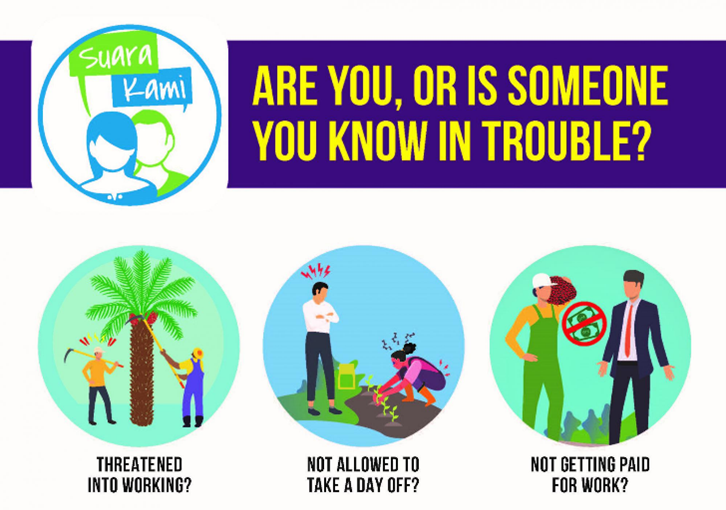
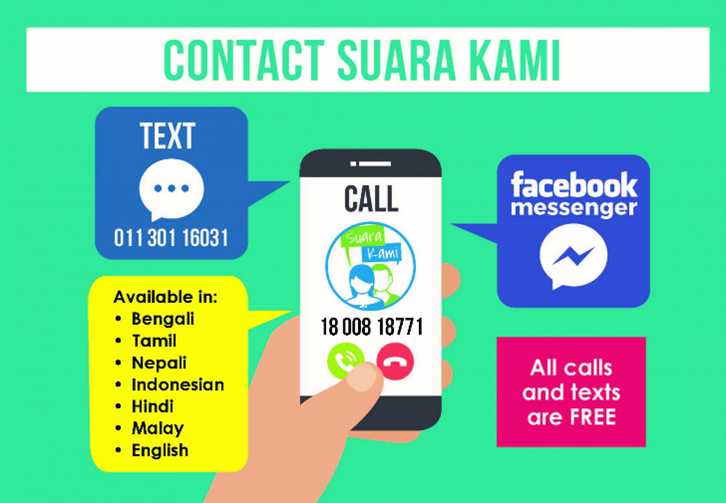
At Sime Darby Plantation, we have also established grievance procedures and whistleblowing channels for all our employees and external parties to report potential ethics, human rights, legal or regulatory violations, including improper or unethical business practices. We will investigate all reported incidents and take appropriate action where violations have been proven.
Our Grievance Policy provides a framework for non-discriminatory and fair treatment of all cases involving all parties. This includes the lowest organisational management level and point of origin. The whistleblowing channel is available on our website in multiple languages. It is a secure, anonymous platform that can be used to report actual, potential, or suspected wrongdoings without fear of repercussions.
We recognise that Human Rights Defenders have an important role and responsibility in upholding human rights. They must be able to lodge complaints in confidence concerning our business activities, without fear of risk to their safety and security. Sime Darby Plantation is therefore committed to preventing harm and affording the necessary protection to any complainant who uses our grievance mechanism. Click HERE to see our Protection of Human Rights Defender Policy.

Pandemic Assistance
When the pandemic struck, Sime Darby Plantation (SDP) knew we had to assist the people during the global health and economic crisis. We partnered our philanthropic arm, Sime Darby Foundation and donated approximately RM10 million or 50% of the funds the foundation used for their COVID-19 related initiatives.
SDP has additionally:
- Contributed over RM7million towards COVID-19 related Corporate Social Responsibility initiatives including support for the national vaccination drive as well as aid and assistance in SDP's three major countries of operations – Malaysia, Indonesia and Papua New Guinea.
- Launched a campaign providing food aid and essential items as well as job opportunities with workers benefits to Malaysians looking to stabilise their income.
- Hosted a drive through vaccination centre for the disabled community at SDP’s headquarters in Ara Damansara.
- Set up three industrial vaccination centres for plantation workers in the states of Sarawak and Selangor in Malaysia.
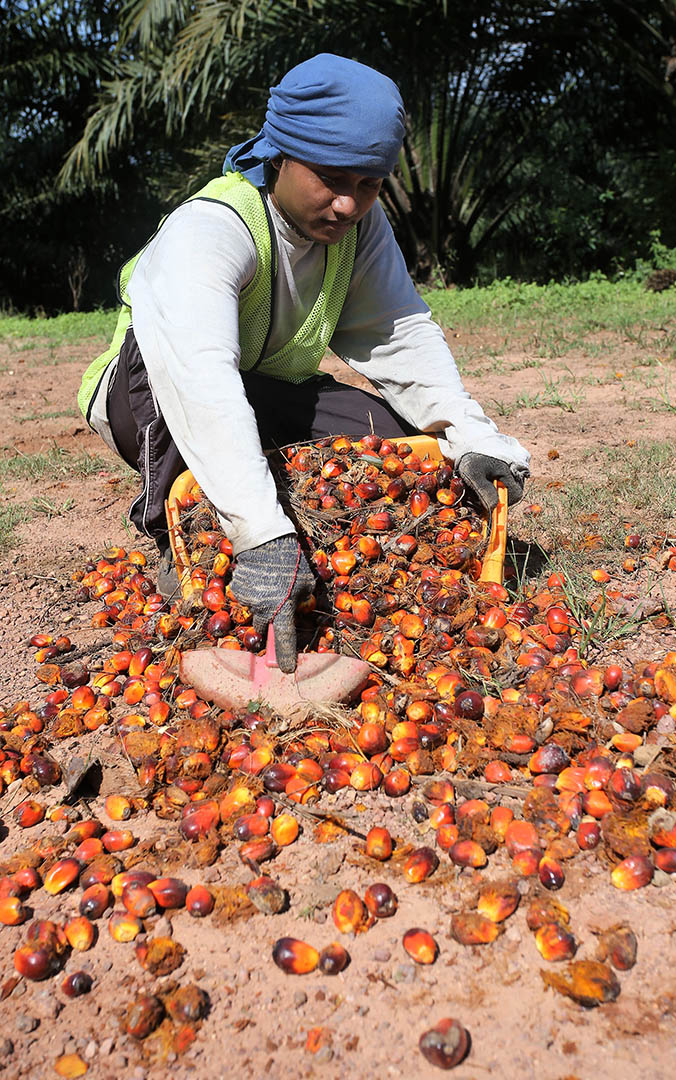
Decent Working and Living Environment
Everyone deserves the right to decent work and a home environment. Sime Darby Plantation recognises that ensuring a decent working and living environment for all workers means providing equal and fair opportunities for employment; proper living arrangements and amenities; social protection; and also respecting workers' rights by empowering them with the right platform to dialogue.
We remain steadfast in our goal to create a productive labour force by delivering fair income within reasonable working conditions. For our operations located in challenging and developing areas, we provide appropriate and adequate living arrangements and access to basic needs. These are considered central to the well-being of our people.
Workforce of About 83,000 People
Data as of December 2022
Sime Darby Plantation is committed to paying fair living wages to all our workers. In our Upstream operations, this means ensuring workers are paid at least the national minimum wage and provided with free in-kind benefits such as food, housing, transport, education facilities and medical access.
Typically, workers are paid monthly, daily or piece-rated in the oil palm industry. Piece-rated workers are paid based on their productivity. The productivity rates are guided by rules on the National Minimum Wage and the relevant Collective Bargaining Agreements of each country.
Work hours are also guided by the Collective Bargaining Agreements, the National Labour Laws and the International Labour Organisation's convention on hours of work.
Due to our strict No Deforestation commitments, we have not developed any land in Indonesia and Malaysia for many years. Our only areas of expansion have been in Papua New Guinea and Solomon Islands, which have low carbon developments in line with the requirements from the RSPO New Planting Procedures and the HCSA. We actively engage with local community leaders and members before any land development to obtain Prior and Informed Consent (FPIC) from communities. This approach ensures that communities impacted by our projects are well informed and that we have obtained permission from landowners who hold legal and customary rights. Our actions are informed by effective conflict resolution frameworks based upon social impact assessments and periodic stakeholder consultations carried out by independent third parties. All our operations conduct regular formal and informal engagements with all local stakeholders, especially at those locations where communities are most affected by our projects.
The reality in PNG and Solomon Islands is somewhat different. We are heavily dependent on communities that control over 97% of the land in PNG and 87% on Solomon Islands. Because most of our landbank is leased by customary landowners, we have adapted our approach to better fit this reality by establishing a due diligence process that truly represents the rightful and customary landowners. Aside from respecting FPIC, we work closely with community members, specifically Incorporated Landowner Groups (ILGs), to determine how to use the land so communities can benefit from our activities. In addition to maintaining a participatory approach to land-use planning, we support landowners with training programmes on practical issues such as intercropping, sound agricultural practices and financial literacy.
We respect our employees’ right to enter into collective bargaining agreements and form or join a trade union. Trade unions and collective bargaining agreements vary from country to country, depending on national laws, but generally cover all workers and staff – including executives and non-executives. In the absence of a formal workers’ union at certain localities, we encourage employees to form joint consultative councils and other similar platforms empowering workers to raise their concerns and safeguard their rights.
All our workers live within our OU compounds in furnished houses with basics as required in local guidelines such as the Employees’ Minimum Standards of Housing, Accommodations & Amenities Act 1990 (Act 446) in Malaysia. In Malaysia alone, SDP owns about 19,000 houses for workers, which are all maintained to specifications and guidelines provided under Malaysian law, including Act 446. Whilst houses vary in terms of size, a typical house for SDP workers would be a three-bedroom unit with a bathroom and a toilet as well as a kitchen, living area and dining area.
In FY2020, heavy investments were made for repairs and maintenance of housing as well as new housing. As of December 2022, we have built 312 units of new workers’ quarters and refurbished an additional 1,086 housing units.
A mobile app, ‘Oil Palm Pal’ was introduced in 2021 as a digital housing complaints system. Workers can use the app to log their complaints in their native languages. These complaints are documented and resolutions are monitored. To support this, handymen as well as electricians and wiremen have been hired across all OUs to assist in the speedy resolution of repair and maintenance requirements. To date, 39,879 housing issues have been highlighted of which 99.87% are resolved and the remaining are still in progress.
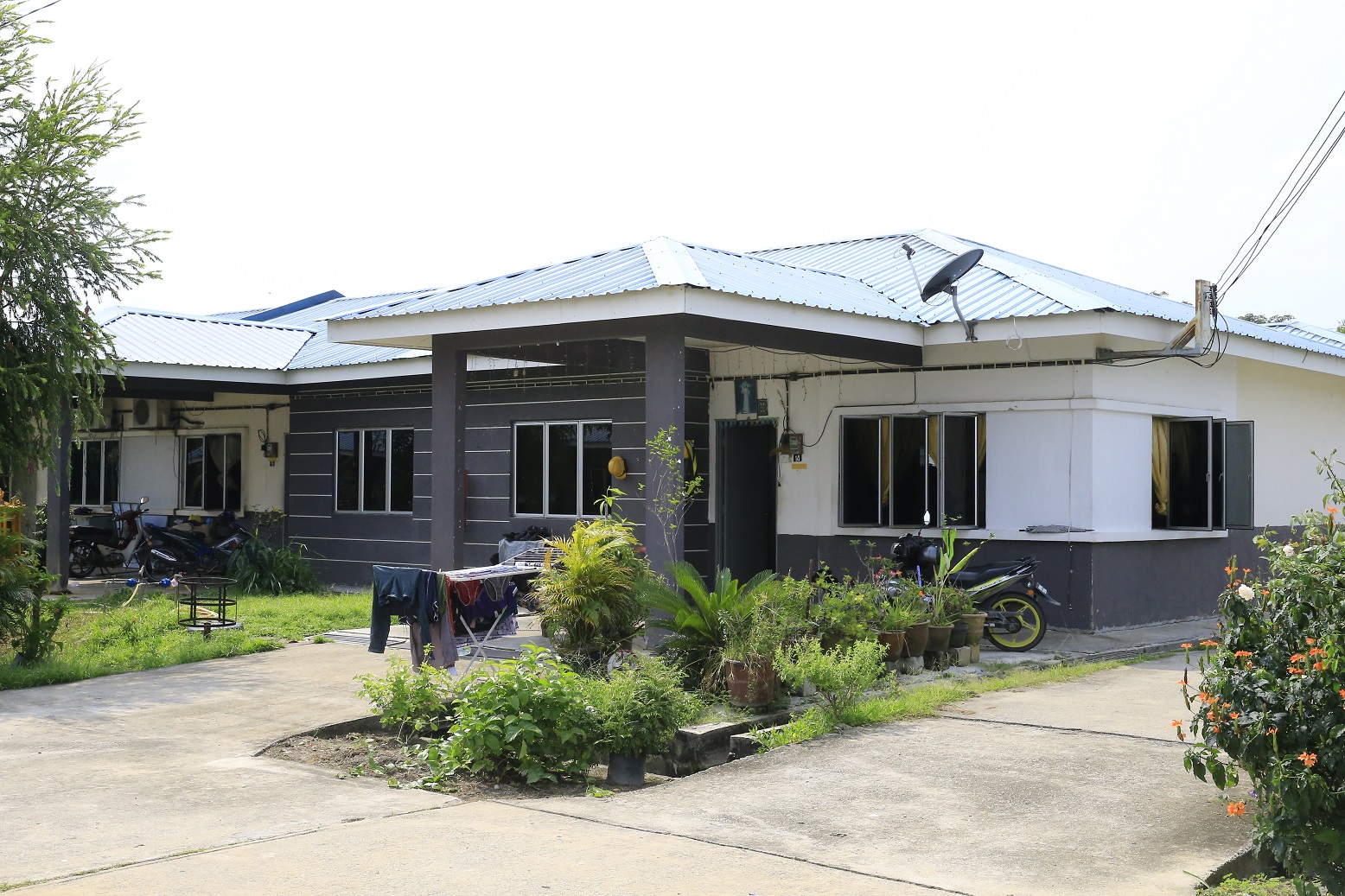
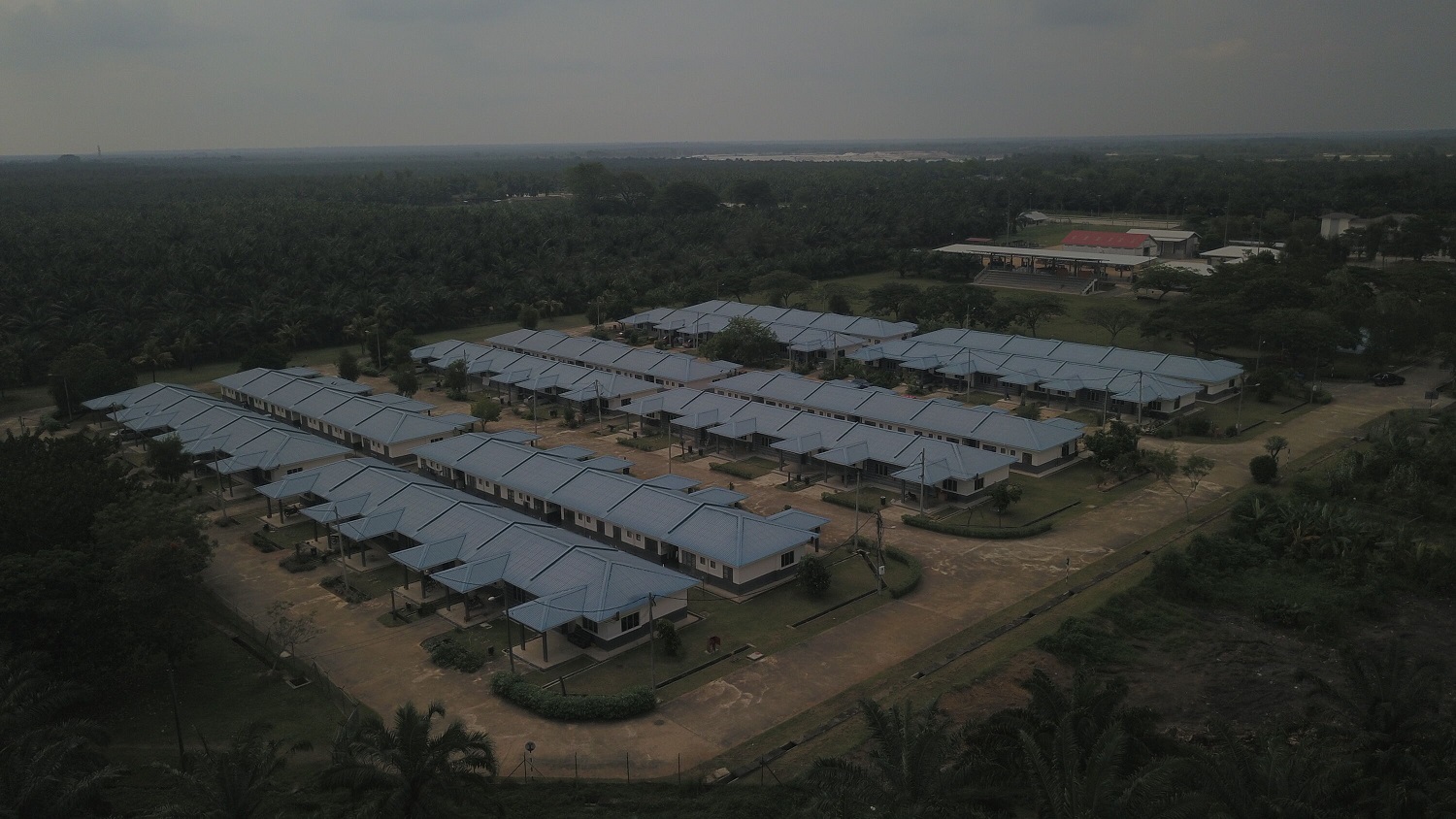
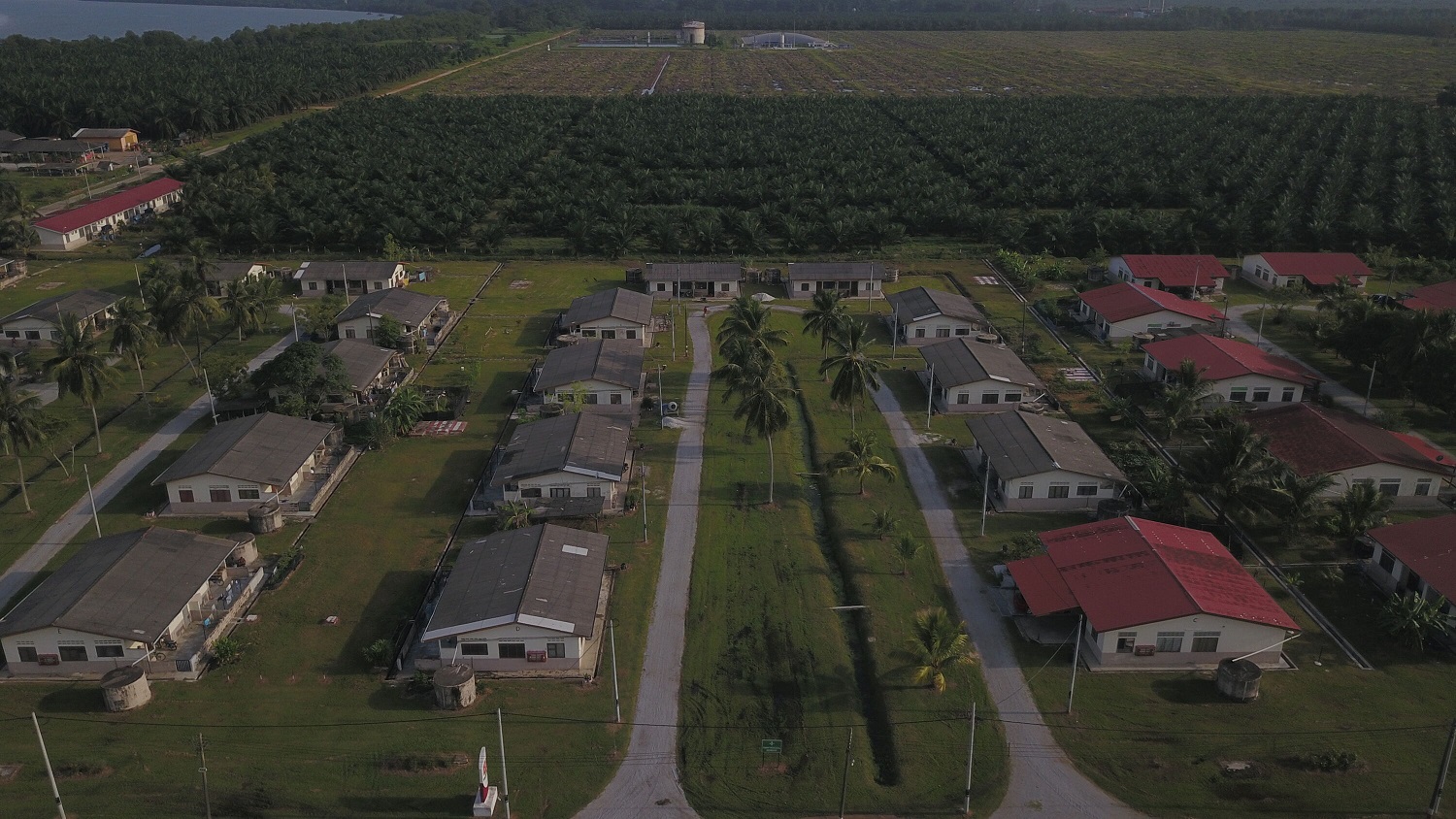
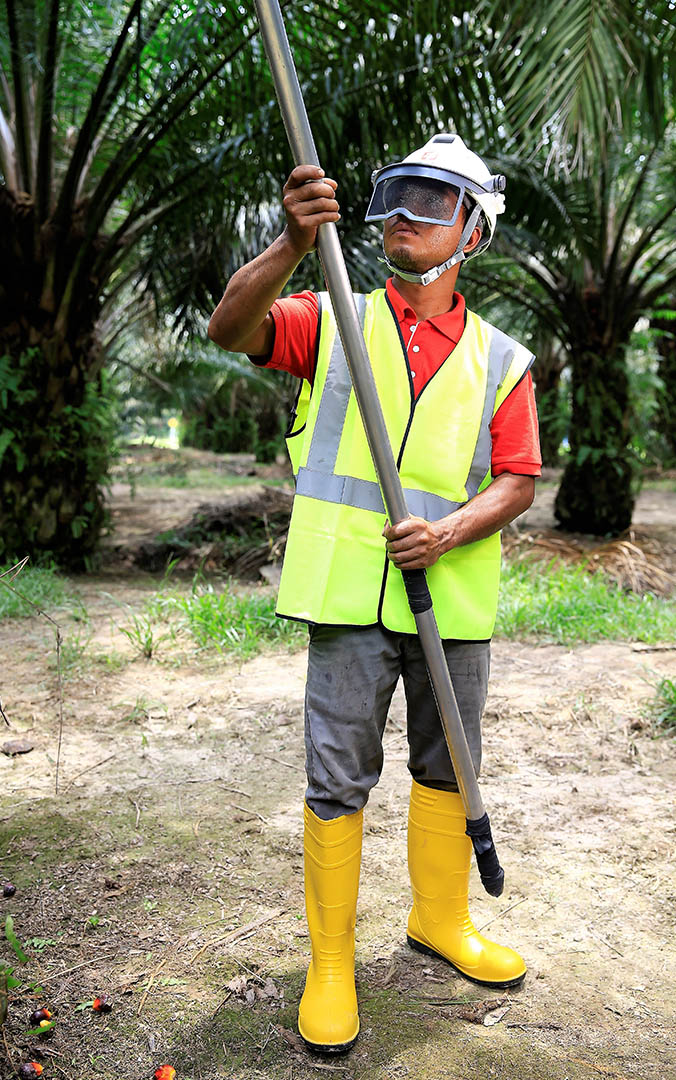
Safety and Health
Safety and health are a key priority for us. We aim for zero harm and firmly believe accidents and injuries are preventable. We have implemented various measures to inculcate an enhanced safety culture at work to improve our safety performance. Towards this end, we have in place clear SOPs and instructions. We provide safety training and appropriate supervision to ensure workers work safely and responsibly.
To enhance ownership and accountability in implementing Safety and Health policies and procedures in operations, we have introduced Key Performance Indicators at various functions and levels. Continuous training programmes for managers, Safety and Health Management Representatives and Safety Committee members are organised to empower operating units to self-assess adequacy of controls in key operational risk areas.
Sime Darby Plantation strives to continuously strengthen the safety performance of our operations. The key to delivering this commitment is by preparing our people with the necessary technical and educational support in occupational safety and health.
All our operations ensure on-the-job and competency training that are aligned to their respective job scopes. This includes:
- Tractor Driver On-Job Training (TD-OJT) Programme - our comprehensive training modules and standard assessment method ensure that all our new and untrained tractor drivers have the necessary competencies and skills to operate the machines safely.
- Harvesting Competency Training Programme (HCTP) - a compulsory training for all new workers who conduct harvesting work to ensure they are safe and skilled to execute their day-to-day jobs.
- Switch-on Safety Leadership Workshops - Series of workshops facilitated by external consultants to empower all our managers to become safety leaders and instil a culture of safety first for all our employees in NBPOL.
- Safety Leadership & Safety Champion – a series of workshop and coaching sessions conducted by external consultants to improve the Company's safety culture using the Hearts-And-Minds® methodology.
- Life Saving Rules (LSR) - a training series with proven live-saving methods. Training includes various topics such as Permit-To-Work, Working at Height, Confined Space, and Lock-Out-Tag-Out.
- Safety Townhall – a series of town hall meetings to provide two-way communication with all employees, socialising new requirements, increasing safety awareness level and explaining the latest developments in the Company.
- Dangerous Decibels® Program - a hearing conservation training program conducted annually by certified internal trainers using internationally recognised and proven modules tailored to our industry.
- Forklift competency program – an annual safe driving training specific for forklift drivers to refresh and hone their competency.
- Health, Safety and Environment (HSE) Conference – a multi-day biennial conference for all HSE personnel to increase their skills and knowledge on the Company's issues.
SIME (Spot, Intervene, Modify, Execute) Programme
We have always believed that safety should be a culture in our organisation.
We introduced SIME, a programme designed specifically as a behavioural-based safety awareness assessment that promotes a positive intervention culture to ingrain this behaviour.
Employees are given SIME cards to identify and mark unsafe acts or conditions, step in where necessary to improve or correct the situation, eliminate or reduce the chance of an unsatisfactory act occurring and ultimately ensure that the act or condition does not re-occur. We even hand out awards to recognise the efforts of those who implement safe working conditions.
There are ergonomic risk factors associated with the work in estates. To minimise the risk of injuries and ill health to our workers, we adopted the following control measures in our operations:
- Women are not encouraged to do heavy-duty work.
- Introduction of mechanisation for spraying activities such as the application of auto spreader and turbo mixer and sprayer drones to reduce risks of ergonomics during spraying.
- Chemicals are packaged in 25kg bags to support workers handling.
- Introduction of Ergonomic Risk Assessment (ERA) methods based on the Guidelines of Ergonomics Risk Assessment at Workplace (2017) to identify, assess, and control ergonomic risk factors associated with the work tasks and activities at the workplace.
- Workers are trained to take intermittent breaks from their tasks and to stretch.
At our operations, medical surveillance is conducted in accordance with national safety and health regulations. This is especially important for workers who are exposed to pesticides.
Generally, an appointed occupational health doctor conducts medical surveillance once a year. Health surveillance is also conducted monthly by a medical assistant, clinic doctor or visiting medical officer.
All our workers are supplied with Personal Protective Equipment (PPE) supplied by the company at no cost to the workers. All workers are trained to properly use these PPEs, and other operational equipment. We have made it a requirement for them to use PPEs, which are periodically replaced. Our PPEs are chosen carefully to ensure that our workers are protected against the risk of accidents or adverse effects on health. They include safety helmets, gloves, eye protection, reflective vests, safety boots, safety harnesses and respiratory protective equipment (RPE).
Over the past decade, we have consciously reduced the amount of pesticides and fertilisers used in our operations, including that of our suppliers. As per our commitment to the Roundtable on Sustainable Palm Oil Principles and Criteria, we do not use chemicals identified by the World Health Organisation as Class 1A (including paraquat) or 1B or those listed on the Stockholm or Rotterdam conventions. We do not use bio-accumulative or persistent pesticides. Pesticides are only employed as a temporary measure and are stopped once the situation is within control and natural controls are reactivated.
Access to pesticides is highly restricted in our operations, and all hazardous substances are stored in designated custom-designed buildings. We keep a register of accidents and incidents of abuse and any instances of misuse of chemicals. We closely monitor health effects and toxicity. To mitigate the use of chemicals, we have a holistic biological pest management system in place.
Integrated Pest Management SystemThe table below charts our chemical usage in 2022 as follows:
Access to medical care is a basic human right, and we ensure that adequate facilities and qualified medical personnel are accessible for the well-being of our workers. Most of our upstream operations in remote locations have clinics with visiting health workers in addition to the medical personnel we employ.
In most of our clinics, referrals to the nearest hospitals are facilitated with ambulance services on standby. If our Medical Assistants are unable to attend to a medical issue, a dedicated person in charge is available to transport workers to nearby hospitals or health facilities.
Nearby communities surrounding our operations are also welcome to use our clinics.
Visiting Medical Officers often conduct healthcare programmes, especially for women and children.
In 2021, a comprehensive study on medical access for workers in our Upstream Malaysia operations was conducted to improve medical access. Some of the outcomes of this review included eliminating document and administrative processing to allow for immediate medical attention.

